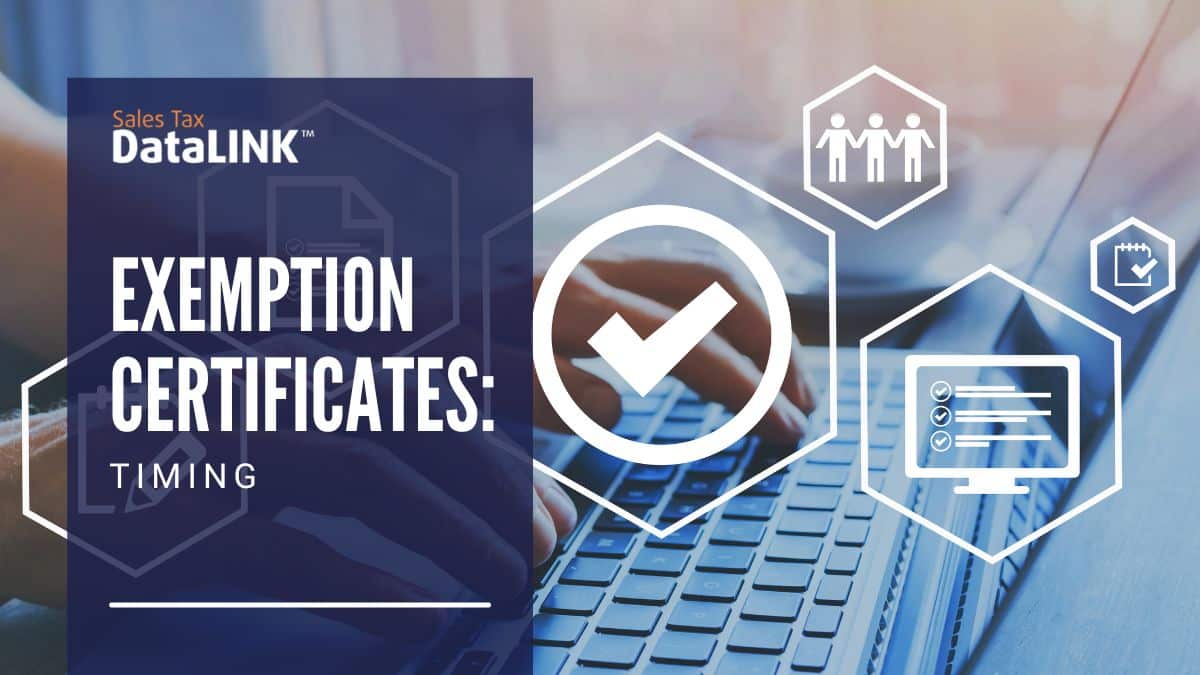Exemption certificates are an important step in correctly collecting sales tax, but it can be a challenge to appropriately accept and maintain exemption certificates. One of the problems is that they’re used as a bargaining chip for sales teams. It’s not uncommon for sales team members to assure companies their business will honor sales tax exemptions even when proper paperwork isn’t available just to close a sale. It might bring in more money to the company at first, but when you’re hit with penalties later it can negate any sales relationship you had with your customer.
So how can you ensure you’re doing your job in terms of sales tax collection while still taking good care of customers? The first step is to make sure you don’t set a precedent of accepting incomplete sales tax exemptions or outdated documents just to accommodate your customers. While it is their responsibility to have their documents in order, it becomes yours if you accept them. When you’re dealing with a customer who does not have the proper paperwork and is an important sale, you can offer to help them get the proper documentation as a way to urge them to do so before the sale is complete. Not only does this protect your company with proper documentation, but it also shows your willingness to serve customers.
Customer service, after all, often will close a sale. If you’re not doing a good job managing your sales tax exemptions from your customers, you could do damage to your relationships with your customers as well as negatively impact your business’s bottom line. We’ve written a guide about “Exemption Certificates” sales tax exemption certificate management and have a “White Papers” white paper on the topic. If you’re not doing everything you can to make sure you’re getting customer sales tax exemptions taken care of, you might be opening up your business to risk in the form of penalties during audits.
Suffering from penalties can create a lot of bad blood between you and those customers who didn’t give proper paperwork. They might also object when you change your policies — it can be hard to go back on agreements when customers have gotten used to them. Tax compliance is all about eliminating risk and exemptions are an important part of that process. If you give an exemption to a customer when they don’t have the proper paperwork, you’re putting your company at risk to pay for the uncollected sales tax. Regular audits to check for non-filed sales tax and what risk is placed on your business is the only way to ensure that you’re close as you can affordably get to 100% compliance.




